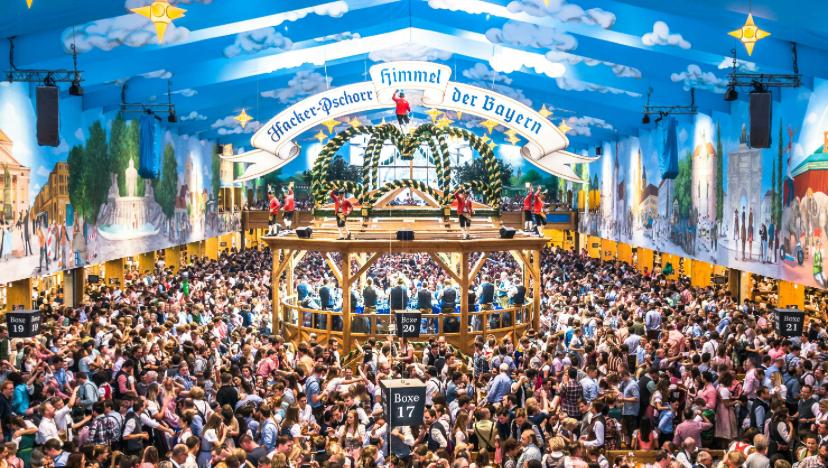Junior Emma Simon, originating from Germany, set out to come to the U.S. and study abroad. Inspired by the possibility of immersing herself in the culture depicted by movies and social media, Emma is now a familiar face in the hallways of KHS.
In Germany, Emma lives with her parents and her two younger sisters and younger brother. When she got here, she was welcomed into a family of 2 host parents, 2 younger host brothers, and a younger host sister. Though this wasn’t much change to her home life in Germany, it did little to ease the transition. As much as she enjoys living with her host family they are not her real family. They have different views, different routines, different habits, and coming from different backgrounds is hard.
Coming to the U.S

Coming to the U.S. was originally Emma’s mom’s idea. She was an exchange student when she was 17. Though she didn’t need much convincing, this as well as the influence of American media was the push that Emma needed to study abroad. Originally Emma was only going to stay here for a semester, meaning she would have left in the beginning of January. Luckily for us, she loved the U.S. and the school so much she chose to stay for the rest of the year.
After deciding to study abroad, you have to find an organization to support your trip and that fits what you want. Some only go between 2 countries but others go world wide; Emma went through a worldwide organization. You have to sign up and fill out a survey asking why you want to do it and where you want to go. You have to get vaccines, but in Emma’s case, it was mostly refreshing some that she already had. She also had to sign what seemed like 1000 documents. After doing all of this she was stuck waiting, hoping for an email saying they found a host family for her. When that email finally arrived she eagerly got her ticket.
Differences/Changes
School
In Germany, much like in America, you start off going to elementary school from 1st to 4th grade. But, unlike America, in Germany your school after elementary school is based on your grades. Each school offers different diplomas to the attending students.
Gymnasium schools are your higher level schools for the more driven students. This school goes through 13th grade and offers better diplomas. This is the school you will attend if you want to become a doctor or something like that. Realschule and Hauptschule schools are the lower level schools, they offer lower diplomas and don’t take as long to complete. You only go to these schools through 10th grade which seems great to me. The higher level school you attend, the better your options for college will be.
Schools in Germany are pretty strict overall. No phones, no headphones, no pep rallies, no multiple choice or open note quizzes. Though they have more uptight rules than in the U.S., They do have school weeks that allow for some relaxation. Students have a different schedule each day of the week. Some days they may only be there from 7:40-12:45, while others may last until 3:30 or 4:00 (15:30 or 16:00)
Cultural
Clothes/Style
As Americans, we take pride in rocking our crocs, sweatpants, and sweatshirts everywhere we go. This is documented on social media, in movies, and pretty much anywhere you look. Emma was not all that surprised to see that this was reality. In Germany, people go out in mostly jeans and a nice top. This is pretty common among most countries outside of the U.S. Emma says that she could never leave the house in some of the things that we wear. She enjoys spirit days, these are the only exceptions to her “No Pjs” rule. “I don’t dress that casual myself like I couldn’t go to school in pajama pants,” Emma notes. I tend to agree that pj’s are somewhat of a bold choice in public even though it has been so normalized.
Food
Food in the U.S. is not widely known for its quality, people from other countries most of the time do not like the food produced here. It is overly processed and unhealthy. However, Emma doesn’t mind it as much as most. Though it is not her first choice, she does not hold a burning hatred for it and it doesn’t feel like surviving with it. She appreciates the gluten free options offered here that are not offered in Germany. Her gluten sensitivity is most likely why she doesn’t mind the food here as much as most. Despite her lack of repugnance towards our food, she does prefer the food of her home country. Her favorite traditional German meals are schnitzel and spätzle (spaetzle) though she can’t eat them anymore due to her gluten intolerance. Turns out that Germany does not offer very many gluten free options. Due to this, Emma opts for Italian food instead. She has a specific appreciation for spaghetti bolognese and lasagna.
Money
Money is something that grows more and more important as you get older. You need to be able to understand it. Normally you have your parents to help you figure things out, but Emma doesn’t get to ask her parents for help all the time. In coming here she has learned to be more independent and more conscious of her spending. She is now learning to budget because she only gets so much money each month. Euros are slightly more valuable than USD, 1 euro is worth $1.08 USD.
One of the things that Emma did have to adjust to is taxes. In Europe taxes are added onto the price tag while here they are added on after the price. Personally I’m not sure why we do it that way, It just seems so much more convenient to be able to walk into a store with one dollar and buy something for one dollar without having to dig for change.
Language Barrier
One of the difficult things about coming here was having to adapt to a new language every single day. As soon as Emma got off the plane with the other Germans coming to the U.S. the realization hit her that she was stuck with English for a long time. Luckily, she has adapted to this very well and doesn’t struggle as much as she thought she would, though she does still have her moments where her English isn’t Englishing.
Traditions

Oktoberfest
Oktoberfest is a popular German tradition. This two-week festival, deeply rooted in German culture, is now recreated in other countries like the U.S. This tradition includes traditional clothing, food, and a lot of beer. Women wear something called a dirndl which is a traditional dress and men wear leather shorts and striped shirts. For women, the bow that is tied around their waist indicates their marital status. If the bow is on your left hip, it indicated that you are single; If it is on your right hip, it indicates that you are married; If the bow is on your back you are either working at the festival or you are a child; If it is in the front, it indicates that you are a widow.
This festival is heavily known for its obscene amount of alcohol. The smallest amount of beer you can get is one liter, because of this, it is very expensive. As Emma is gluten free, she opts for chocolate covered strawberries over some of the more traditional food. This festival is so busy that people have to get there very early in order to reserve a table, though there is also an option to reserve tables, it is very expensive. Food is one of the most attractive things about this event, there are all kinds of foods. There is even a weekend celebrating Italian foods and traditions.

Oktoberfest is full of attractions like games and roller coasters. One of the older games involves a spinning platform. The announcer of the game calls upon specific groups of people to get on the wheel. Those chosen cling to the surface of the platform as it spins faster and faster, fighting to stay in place. Those watching this disaster take place are preying on your downfall as they throw things at you trying to knock you off as the survivors diminish.
Spring Festival
This festival is much smaller though it takes place on the same grounds. The traditional outfits are still worn; it is much less known than the famous Oktoberfest.
Maifeier

Maifeier is a tradition that mostly takes place in Bavaria and southern Germany. It involves a giant “tree” and some friendly competition between communities. They celebrate the beginning of this tradition with parties and beer beginning in March or April
Each community has a tree that they put up on the first of May and as the month goes on communities try to steal each other’s trees. This proves difficult when there are teenagers posted to guard it day and night. The communities build little sheds for the teens to hang out in while they stand guard. If the tree is stolen nothing generally happens it is just really embarrassing. As you can imagine, this can get pretty competitive as you are trying to fight off grinches while also trying to steal other people’s tree.
St. Martin

St. Martin is a tradition for the children. This takes place normally in school, the children carry lights in the streets like a parade. In southern Germany this is mostly done by little kids.
In school, children learn songs to sing while carrying these lights. At the end of this parade the children get candy before preparing for the play. The children have to do a play based of the story of St. Martin after the parade. This is a much bigger tradition in the city than in more rural areas.
Emma
Concluding this spotlight on Emma, I just want to say thank you so much for giving me the privilege to write about you and your beautiful culture. Since I met Emma not that long ago she has been nothing but kind to me. She has a good attitude about everything, she is so accepting, and she is just so nice. If you ever see her anywhere you should say hi, you will not regret it. I can honestly say that it has been a privilege to be able to write about her and the culture she is a part of. I appreciate the opportunity to learn about your culture and I hope that one day I can go to Germany and experience it.







































Lily • Mar 22, 2024 at 7:23 am
Absolutely Amazing! 10/10!
Rick Day • Mar 21, 2024 at 7:09 am
Well presented! The author researched her subject well. With the German and Dutch communities in the Cincinnati area some of those traditions are being celebrated here.
It was interesting to read about how their schools differ and how they form their future. I don’t think many elementary students in the U.S. are disciplined enough to think their grades will determine their future.
Well done!
Patricia Day • Mar 20, 2024 at 9:19 am
This is well written and very interesting! My niece lived in Germany when she had her daughter. I will have to share this with them. My family originated in Germany, many generations ago.